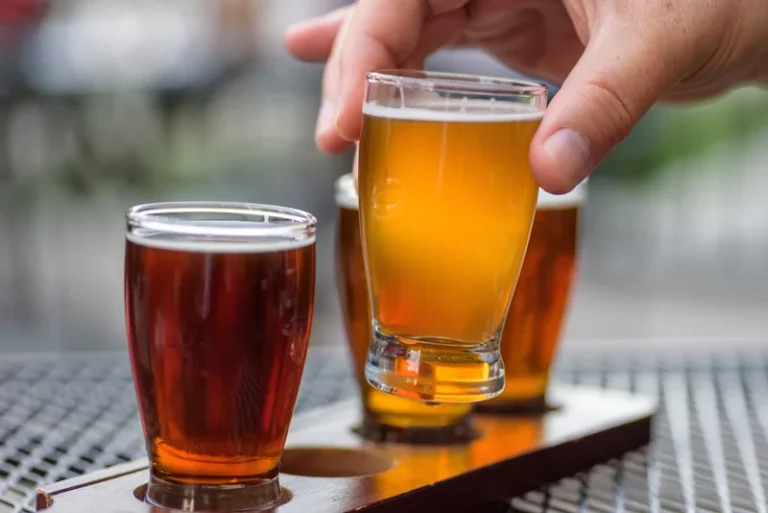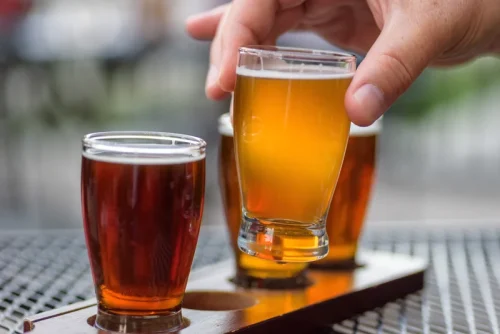How to Stop Alcohol Withdrawal Shakes

It requires immediate medical attention and is considered an emergency. Alcohol shakes or tremors, on the other hand, are typically not an emergency nor are they life-threatening. However, severe tremors could indicate worsening withdrawal symptoms and are a reason to consult with a medical provider. Getting treatment early can prevent progression into seizures or DTs. Alcohol shakes, also known as tremors, and delirium tremens (DTs) are both symptoms of alcohol withdrawal, but they differ significantly in severity and potential risks. Delirium tremens is a severe form of alcohol withdrawal characterized by sudden and severe changes in mental status and neurological function.
– Don’t go through withdrawal alone.
Mindful meditation is another great way to reduce your anxiety and help prevent cravings and future relapses. To learn how to find an inpatient detox center, read more from our Medical co-author. Midwest Recovery Centers believes strongly in a client-centered approach. The substances on the street are constantly changing and so are the number of contraindications and fatal threats that substance use imposes on the person suffering. Each client may present with a different scope of medical needs whether it’s their blood work or the most effective medications for them.
Find New Hobbies or Activities to Avoid Triggers
- It often raises many questions, especially regarding effective strategies for managing symptoms and ensuring safety.
- We place a strong emphasis on educating patients about this chronic illness and empowering them to practice treating it as such.
- In addition to reducing daily drinking, naltrexone has been shown to reduce alcohol cravings as a measurable symptom (3).
- The withdrawal process can be dangerous, and its symptoms vary depending on the severity of alcohol use.
If you experience any of them, however, you should also seek medical attention right away. Aside from medications, your doctor may be able to help you create a plan to slowly cut back your drinking so you avoid withdrawal altogether. He or she may also make personalized recommendations that can make your detox experience less painful.
- A good diet won’t lessen withdrawal effects but will support your body’s ability to deal with them.
- What matters most is your ability to maintain an open, curious outlook as you learn what does and doesn’t work for you.
- Tremors usually begin within 5 to 10 hours after someone’s last drink.
- You can use the guidelines to get an idea of how many standard drinks you’re used to.
- Read on to find out and pick up a few tips to help yourself feel better.
- Several medications can be used to manage alcohol withdrawal symptoms, including shakes.
- This results in the decreased anxiety and sedation that drinkers often experience.
Getting Started With Drinking Less
Talk to your doctor or a drug treatment specialist about what to expect as you experience alcohol withdrawal. Identify a family member or friend who you can call on to provide emotional support. Alcohol withdrawal symptoms can range from being a slight nuisance to extremely uncomfortable. In turn, it can be challenging to learn https://ecosoberhouse.com/ what helps with alcohol withdrawal.

Behavioral health treatment for alcohol problems is often (but not always) covered by insurance. In the United States, most states have low-cost or free rehabilitation programs for those who are uninsured. If you don’t already have a supportive network, you can make new connections by joining social media communities dedicated to alcohol-free living.
The frequency and intensity of your tremors can depend on the severity of your alcohol drinking. If you or a loved one is wanting to know how to quit alcohol and stop drinking for long-term sobriety, seeking professional help can make all the difference. Our admissions navigators are available to speak with you about treatment options 24/7. Call our hotline at fill out the form at the bottom of this page to start your journey toward recovery today. Stress and anxiety can increase the severity of alcohol withdrawal symptoms.

Alcohol Detox Shakes & Tremors: How to Stop Them
- Eating a balanced diet is crucial for preventing alcohol withdrawal shakes.
- Although detoxing from alcohol at home can have benefits, the early stages of sobriety pose a dangerous risk for medical complications.
- Having little to no access to alcohol can help you stop drinking.
- Turner notes the importance of bringing along a trusted support person when attending events that involve alcohol.
- He believes in the value of hard work and dedication to overcoming mental illness and will help his patients to achieve their mental health goals.
If you how to stop alcohol shakes at home are struggling with alcohol abuse and would like to quit, but don’t quite need detox or rehab, you can talk to your doctor about finding a safe and effective way to sober up. Alcohol withdrawal shakes can be scary, especially because seizures and severe tremors are possible during alcohol withdrawal. And, these tremors will go away once you have detoxed completely. Withdrawal usually begins 6 to 8 hours after the last drink and peaks within 72 hours.

You can choose to taper your substance use or go “cold turkey.” In either case, you won’t have outside support or treatment. Overall, the process can take weeks, and you might still feel withdrawal symptoms for months. Setting aside time to focus on the detox can help you prepare for withdrawal. If you feel comfortable doing so, discuss your challenges with your primary healthcare professional. Finding a therapist can also be a great starting point if you’re uncomfortable opening up to your healthcare professional.

Detoxification

If you begin to experience DT, you always need to get immediate medical attention, as it can be life-threatening. Many people with alcohol use disorder struggle with dehydration and nausea during withdrawal. Drinking lots of fluids, especially fluids with electrolytes, will help address dehydration and nausea and improve your overall health and ability to undergo withdrawal. Sodium, calcium, potassium and magnesium are common electrolytes in sports drinks. When they suddenly quit drinking, the brain continues its hyperactivity, but alcohol no longer suppresses the effects.
